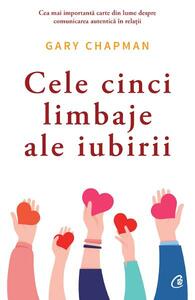Take a photo of a barcode or cover
Đây là một cuốn sách nên đọc. Cách viết rất rõ ràng, dễ hiểu.
I love the idea behind this. It really helps you learn something about yourself.
I think about and refer to the 5 love languages often. I think this book only taught me one new thing, and here it is- your love language(s) are also the way(s) you can be most deeply hurt. Makes sense, but I hadn't thought of it before.
I love the languages, but this book blows. Chapman writes for a narrow audience- white hetero (and evangelical, apparently) American couples. He references therapy clients who had significant relationship issues, including borderline (and not so borderline) abuse. Chapman's advice to them about how to more effectively show their love to one another really seems to miss the mark.
I love the languages, but this book blows. Chapman writes for a narrow audience- white hetero (and evangelical, apparently) American couples. He references therapy clients who had significant relationship issues, including borderline (and not so borderline) abuse. Chapman's advice to them about how to more effectively show their love to one another really seems to miss the mark.
I am always up for a personality assessment. I’m certain I put a bit too much stock in them, like some people with astrology, but they are fun and get me asking questions about myself and my behavior (and my spouse and his behavior)!
This was a good read. And once we took the quiz ourself it was easier to see how once our “love tanks” are feeling a bit low, we often need to turn to friends to help us fill again enough to communicate love in an effective way. For instance, I am dominantly acts of service- so when our relationship is strained I try to DO more to make him feel loved (dishes, cook more, make his fave snacks), but he would just try to be more physically present (his language is touch- “bopping” me on the nose, a kiss on the cheek, petting my hair).
I’m excited to keep up the recommended exercises to see if we can better learn the habit of speaking each others’ languages!
This was a good read. And once we took the quiz ourself it was easier to see how once our “love tanks” are feeling a bit low, we often need to turn to friends to help us fill again enough to communicate love in an effective way. For instance, I am dominantly acts of service- so when our relationship is strained I try to DO more to make him feel loved (dishes, cook more, make his fave snacks), but he would just try to be more physically present (his language is touch- “bopping” me on the nose, a kiss on the cheek, petting my hair).
I’m excited to keep up the recommended exercises to see if we can better learn the habit of speaking each others’ languages!
informative
I learned 5 things that the author Gary Chapman categorized the love relationship not just on marriage but also everyday relations with friends and families.
I appreciate the concept that people give and receive love in different languages. I think understanding how your partner wants to be loved is a valid approach in building intimacy. That being said, I am not a fan of the practical application of the concept in this book.
As much as I wanted to love it, I found the writing highly problematic and off putting as it perpetuates harmful stereotypes (e.g. that all relationships are heteronormative, that the sexes are better suited in the traditional roles, that people SHOULD stay in toxic/abusive relationships simply because they are married, etc.). On top of all of that, it is written from the rather narrow perspective of a highly religious, heterosexual, man. Now, I’m not saying that there is anything wrong with that AT ALL, but if the intention is to make the concept of the 5 love languages available to the masses, I think this book failed there. The advice he gives is riddled with implicit biases that, while they may apply to other similar individuals, they certainly do not apply to ALL. I found much of his advice to be questionable (at best) and I found his advice style to be annoyingly self-important.
Overall, I found this book to be pretty disappointing. There are some core concepts I’ll definitely take away from this book and use in my life, but in general I found the scope in which he applied those concepts to be too narrow, and therefore somewhat off putting, for my taste. Wouldn’t bother reading this again.
As much as I wanted to love it, I found the writing highly problematic and off putting as it perpetuates harmful stereotypes (e.g. that all relationships are heteronormative, that the sexes are better suited in the traditional roles, that people SHOULD stay in toxic/abusive relationships simply because they are married, etc.). On top of all of that, it is written from the rather narrow perspective of a highly religious, heterosexual, man. Now, I’m not saying that there is anything wrong with that AT ALL, but if the intention is to make the concept of the 5 love languages available to the masses, I think this book failed there. The advice he gives is riddled with implicit biases that, while they may apply to other similar individuals, they certainly do not apply to ALL. I found much of his advice to be questionable (at best) and I found his advice style to be annoyingly self-important.
Overall, I found this book to be pretty disappointing. There are some core concepts I’ll definitely take away from this book and use in my life, but in general I found the scope in which he applied those concepts to be too narrow, and therefore somewhat off putting, for my taste. Wouldn’t bother reading this again.
Curto. De leitura fluida e rápida. Muito interessante!


